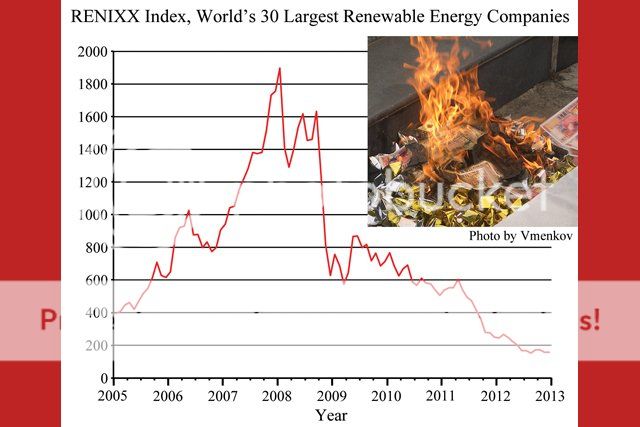RollingThunder
Gold Member
- Mar 22, 2010
- 4,818
- 522
- 155
Here's the latest research results on the Arctic.....
Clearest indication yet that polar ice sheets are melting fast
Melting polar ice has added 11.1mm (0.43") to global sea levels in two decades
Arstechnica
by David Cornish, wired.co.uk
Dec 2 2012
(excerpts)
A research paper has drawn on data from NASA and ESA satellites to produce the most comprehensive assessment of ice sheet losses in Antarctica and Greenland to date. The paper, published on 29 November in the journal Science, shows that melting Antarctic and Greenland ice sheets have added 11.1mm (0.43") to global sea levels since 1992. The paper, A reconciled estimate of ice sheet mass balance, was drawn together by an international team of 47 researchers, using data collected from ten satellite missions to produce the most consistent picture of polar ice sheets ever recorded. The resulting findings have been able to reconcile the differences that existed between previous ice sheet studies, by carefully matching observation periods and survey areas. The findings of the international teamthe Ice Sheet Mass Balance Inter-comparison Exercise (IMBIE)give clarity to the Intergovernmental Panel on Climate Change's 2007 reports. The latter study's time scale was so broad that it was not possible to tell if Antarctica was growing or shrinking, but the use of data from NASA and ESA satellites have confirmed that both Antarctica and Greenland are losing ice. The combined melting of both the Antarctic and Greenland ice sheets accounted for one-fifth of all sea level rises over the 20-year survey periodthe remainder caused by the thermal expansion of the warming ocean, melting of mountain glaciers and small Arctic ice caps, and groundwater mining. The rate at which the ice sheets are melting was also seen to rise over the study period, with both Antartica and Greenland shedding more than three times as much ice each year (the equivalent to a sea level rise of 0.95mm) as they were in the 1990s (0.27mm). Approximately two-thirds of the loss is coming from Greenland. "The rate of ice loss from Greenland has increased almost five-fold since the mid-1990s" said NASA's Erik Ivins, co-author on the study. "In contrast, while the regional changes in Antarctic ice over time are sometimes quite striking, the overall balance has remained fairly constantat least within the certainty of the satellite measurements we have to hand." Andrew Shepherd of the University of Leeds led the study, which drew together teams from 26 laboratories from across the globe.
Clearest indication yet that polar ice sheets are melting fast
Melting polar ice has added 11.1mm (0.43") to global sea levels in two decades
Arstechnica
by David Cornish, wired.co.uk
Dec 2 2012
(excerpts)
A research paper has drawn on data from NASA and ESA satellites to produce the most comprehensive assessment of ice sheet losses in Antarctica and Greenland to date. The paper, published on 29 November in the journal Science, shows that melting Antarctic and Greenland ice sheets have added 11.1mm (0.43") to global sea levels since 1992. The paper, A reconciled estimate of ice sheet mass balance, was drawn together by an international team of 47 researchers, using data collected from ten satellite missions to produce the most consistent picture of polar ice sheets ever recorded. The resulting findings have been able to reconcile the differences that existed between previous ice sheet studies, by carefully matching observation periods and survey areas. The findings of the international teamthe Ice Sheet Mass Balance Inter-comparison Exercise (IMBIE)give clarity to the Intergovernmental Panel on Climate Change's 2007 reports. The latter study's time scale was so broad that it was not possible to tell if Antarctica was growing or shrinking, but the use of data from NASA and ESA satellites have confirmed that both Antarctica and Greenland are losing ice. The combined melting of both the Antarctic and Greenland ice sheets accounted for one-fifth of all sea level rises over the 20-year survey periodthe remainder caused by the thermal expansion of the warming ocean, melting of mountain glaciers and small Arctic ice caps, and groundwater mining. The rate at which the ice sheets are melting was also seen to rise over the study period, with both Antartica and Greenland shedding more than three times as much ice each year (the equivalent to a sea level rise of 0.95mm) as they were in the 1990s (0.27mm). Approximately two-thirds of the loss is coming from Greenland. "The rate of ice loss from Greenland has increased almost five-fold since the mid-1990s" said NASA's Erik Ivins, co-author on the study. "In contrast, while the regional changes in Antarctic ice over time are sometimes quite striking, the overall balance has remained fairly constantat least within the certainty of the satellite measurements we have to hand." Andrew Shepherd of the University of Leeds led the study, which drew together teams from 26 laboratories from across the globe.


